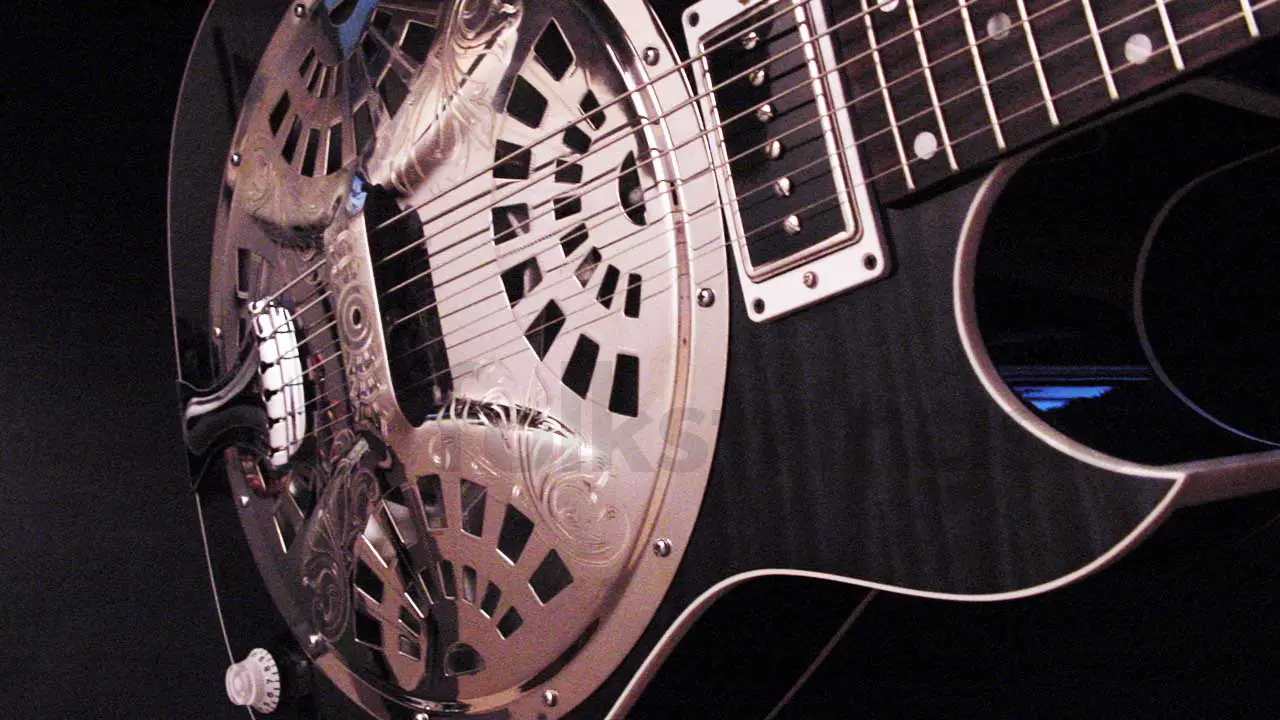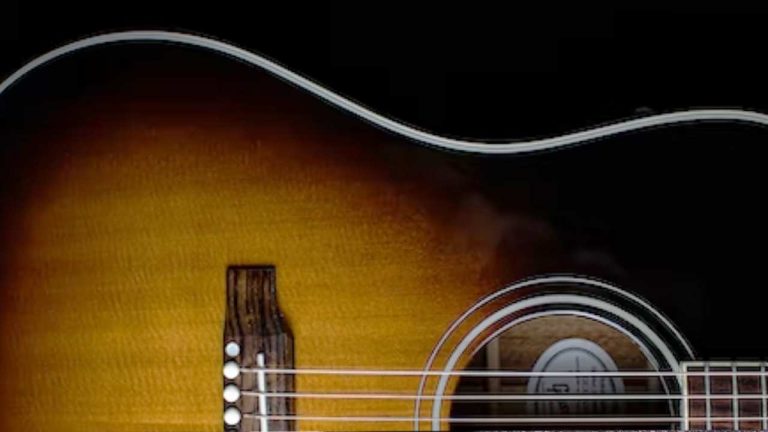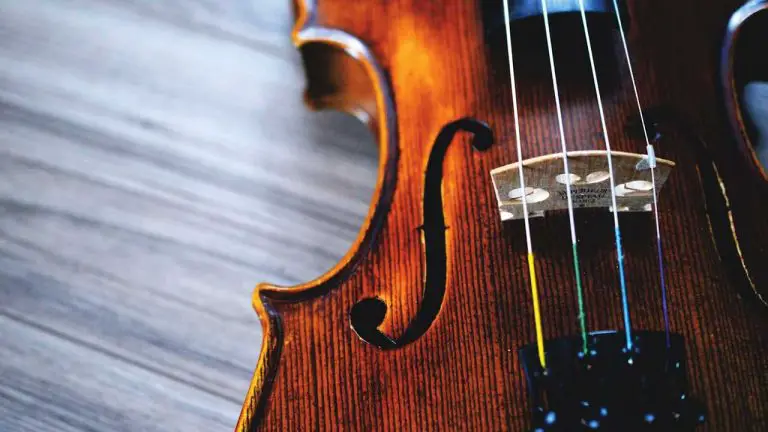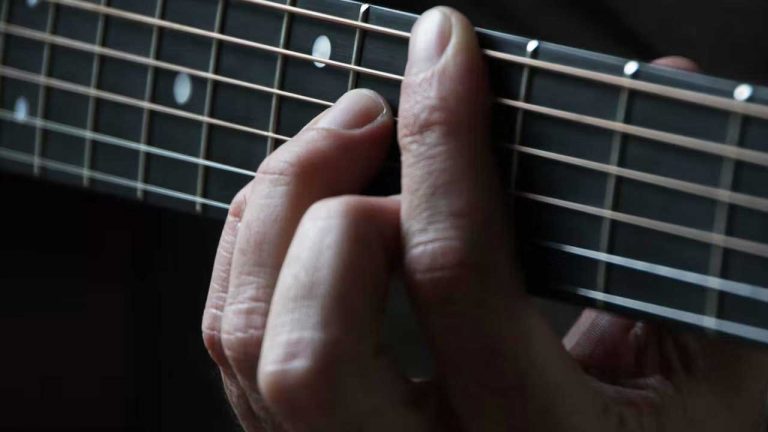5 All Important Resonator Guitar Questions – Read This First
Folkstrings.com is reader-supported. When you buy through links on our site, we may earn a small commission.
There’s just something undeniably cool about resonator guitars. Maybe it’s the unique sound they create, or the way they look – but whatever it is, resonators have a special place in the hearts of guitarists.
If you’re curious about resonator guitars and want to learn more about them, read on!
This post will explain everything you need to know about these unique instruments. Resonators are definitely worth checking out if you’re looking for a new guitar to add to your collection.
Table of Contents
- Do Resonator Guitars Need Special Strings?
- How Loud Is a Resonator Guitar?
- Can You Play a Resonator Guitar Like an Acoustic?
- How to Make an Electric Guitar Sound Like a Resonator?
- How to Clean a Resonator Guitar?
- Conclusion
Do Resonator Guitars Need Special Strings?
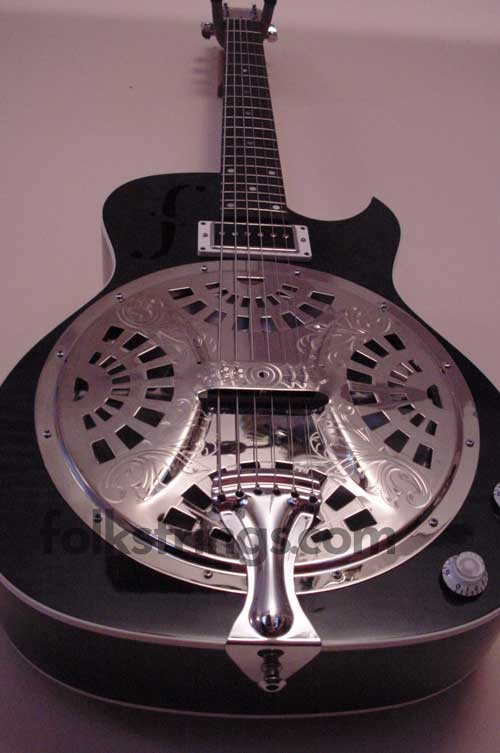
Resonator guitars are a bit of a mystery. Even to those who have been playing guitar for years, they can be an enigma. Part of this is because they are relatively new on the scene, having only been around for about 100 years.
But another part of it is because they are just plain weird looking. With their strange metal cones and spidery bridge, resonator guitars can appear quite daunting.
So it’s no wonder that people often ask if these guitars need special strings. The answer, interestingly enough, is both yes and no.
While resonator guitars do require strings that are a bit different from traditional acoustic strings, you don’t necessarily need to buy a whole set of special strings. Any good quality steel string will do the trick.
So go ahead and experiment with different types and gauges until you find the perfect set for your resonator guitar.
How Loud Is a Resonator Guitar?
A resonator guitar is a type of acoustic guitar that utilizes one or more metal cones to amplify the sound of the strings.
While the metal cones are often associated with a “twangy” sound, resonator guitars can actually produce a wide range of tones.
The volume level of a resonator guitar is determined by several factors, including the size and number of metal cones, the type of wood used for the body, and the gauge of the strings.
In general, resonator guitars are louder than traditional acoustic guitars, and they are often used in genres such as bluegrass and country.
However, with the right setup, a resonator guitar can be just as versatile as any other type of acoustic guitar.
Can You Play a Resonator Guitar Like an Acoustic?
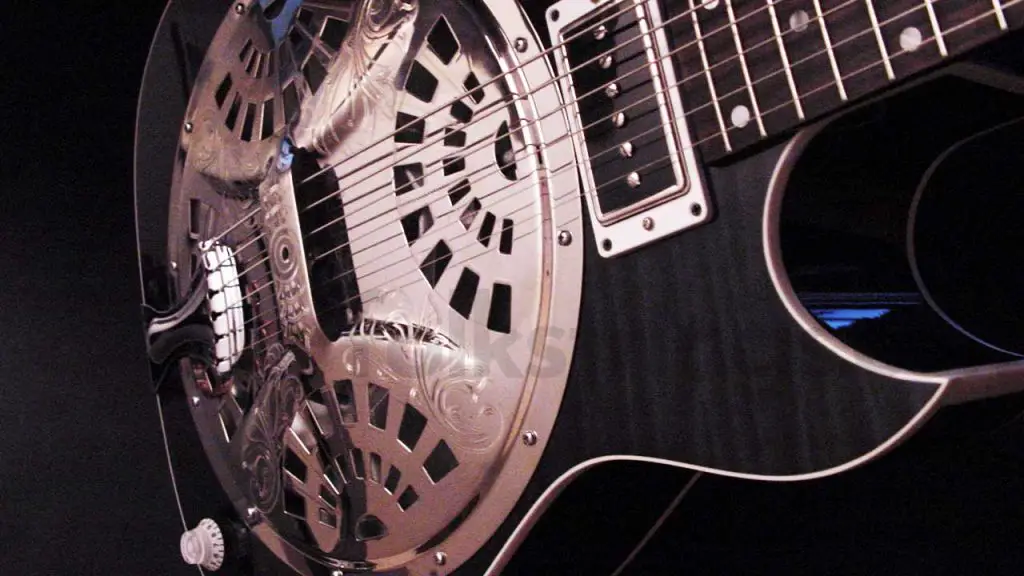
Well, that depends… While a resonator guitar can be played like an acoustic guitar, there are some important differences that you should be aware of before you try.
For one thing, resonator guitars typically have a metal body, which gives them a brighter sound. They also have a larger body size, which can make them more difficult to play in some positions.
Additionally, the strings on a resonator guitar are typically located further apart than on an acoustic guitar, which can make them more challenging to fret.
So if you’re thinking of playing a resonator guitar like an acoustic guitar, be prepared for a bit of a learning curve. But hey, that’s all part of the fun, right?
How to Make an Electric Guitar Sound Like a Resonator?
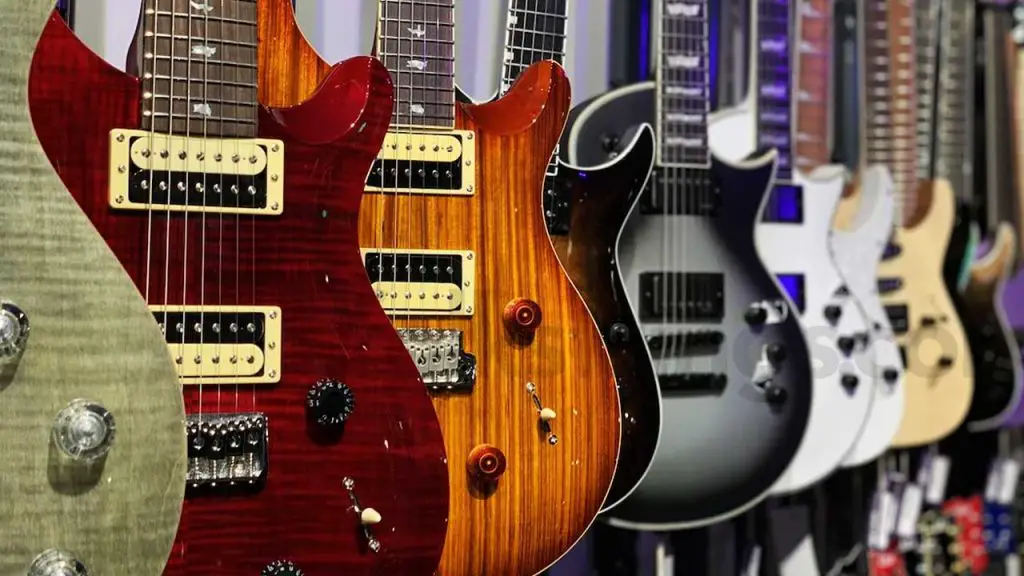
Making an electric guitar sound like a resonator is actually a difficult task. The vast majority of electric guitars are not designed to produce the same resonant tones as their acoustic counterparts.
The best way is to simply purchase a resonator guitar, however, this may not be the most cost-effective option for everyone.
If you’re looking to add some twang to your guitar playing, here are four ways you can try to make your electric guitar sound like a resonator:
- Use an external amplifier. By running your electric guitar through an external amplifier, you can achieve a similar sound to what you would get from a resonator guitar. Be sure to use an amplifier with good distortion capabilities for the best results.
- Use an effects pedal. There are several types of effects pedals on the market that can give your electric guitar the same sound as a resonator. Try out a few different pedals until you find one that you like.
- Change your pickups. The type of pickups you use on your electric guitar can also affect its sound. If you want to make your guitar sound more like a resonator, try using single-coil pickups instead of humbucker pickups.
- Play with the EQ settings on your amplifier. Adjusting the EQ settings on your amplifier can also help to create the desired effect. Experiment with different settings until you find something that sounds good to you.
How to Clean a Resonator Guitar?
For anyone who has ever tried to clean a resonator guitar, they know it can be quite a challenge.
Follow these simple steps, and it will be looking and sounding as good as new in no time!
- Remove the strings and use a soft cloth to dust off the body of the guitar. Be sure to get into all the nooks and crannies, as dirt and grime can build up over time.
- Clean the fingerboard with a lightly dampened cloth. You can also use a mild cleanser designed specifically for musical instruments. Just be sure to rinse it off completely afterwards.
- Polish the finish with a clean, dry cloth. This will help to restore the shine and protect the finish from further damage. With just a little bit of care, your resonator guitar will stay looking and sounding great for years to come!
Conclusion
In conclusion, the resonator guitar is a great instrument that offers a ton of versatility and a whole lot of fun.
It’s a great instrument for beginners and experts alike. So whether you’re looking for a new instrument, or want to upgrade your current set-up, the resonator guitar might be the one for you.
Author Profile
-
Daniel Johnstone is an English writer with a love for stringed instruments from around the world.
He shares his love for these instruments through his writing for folkstrings.com, a website dedicated to all things related to folk string music.
Daniel's passion for music started at a young age, and he has since become an accomplished musician, playing guitar, cavaco, and recently, the harp.
His dedication to learning and sharing his knowledge of stringed instruments is evident in his insightful and engaging blog posts. Whether you're a seasoned musician or a beginner, Daniel's writing is sure to inspire and entertain you.
When he's not playing music or writing, you can find Daniel exploring new instruments and seeking out new sounds to share with his readers.
Latest entries
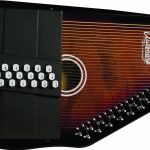 AutoharpApril 4, 2024What Is the Autoharp Made Of: Exploring Its Materials and Craftsmanship
AutoharpApril 4, 2024What Is the Autoharp Made Of: Exploring Its Materials and Craftsmanship AutoharpApril 4, 2024Is Autoharp Easy to Play? Unveiling the Truth for Beginners
AutoharpApril 4, 2024Is Autoharp Easy to Play? Unveiling the Truth for Beginners AutoharpApril 4, 2024What Is an Autoharp Worth? Your Guide to Pricing and Value
AutoharpApril 4, 2024What Is an Autoharp Worth? Your Guide to Pricing and Value AutoharpApril 4, 2024Are Autoharp and Zither the Same Thing? Unraveling String Instrument Myths
AutoharpApril 4, 2024Are Autoharp and Zither the Same Thing? Unraveling String Instrument Myths
Affiliates:
This post may contain affiliate links that at no additional cost to you, the site may earn a small commission. We only recommend products we would use ourselves and all opinions expressed on this site are our own.
Accuracy Advice:
While we strive to provide up-to-date and accurate information, the content in this article may not reflect the most current research or medical guidelines. We encourage readers to do further research and consult with professionals for more personalized advice.
Our Recommendations:
The products and services mentioned in any of our articles are recommended based on our independent research and personal experience. We are not sponsored by any company. We aim to suggest products and services we believe are of high quality and could be beneficial to our readers.

